Shifting paradigms at a time of great change

As we move toward the end 2025, the world is witnessing profound changes to the underpinnings and application of export controls and sanctions – radical departures from previous administrations’ use of legislation and priorities – while global security issues remain heightened and urgent.
More than ever, developments in trade and sanctions compliance have brought new and often business-critical challenges for Trade Compliance Professionals and their Advisors to respond to and manage.
It is against this background that WorldECR hosts its annual Export Controls and Sanctions Forum. There is much to discuss.
Join fellow trade professionals at the WorldECR Forum as we consider the key issues and themes of the day, including:
- China-US relations – through the prism of export controls and sanctions
- The Trump administration’s use of IEEPA to justify tariff hikes on nations including partners and allies (now under challenge)
- The focus on Mexico and other targets of the Fentanyl FEND OFF Act
- Iran: with Snapback triggered – what’s next?
- AI: latest on regulators’ attempts to control it (and its use as a compliance helpmate)
- The latest with AUKUS (creating commercial opportunities through skilful use of export controls)
- International sanctions developments: with the sanctions against Russia largely targeting its ability to ship oil, what are the latest developments and red flags?
and much more.
As has become established practice, this year’s Forum brings together government, industry, policy and legal private practice, to lead the trade compliance debate.
Networking
As in past years, you can enjoy an optional dinner on the first evening of the Forum, following a networking drinks reception. To date, this relaxed and informal dinner for speakers, panelists and delegates, held in a local restaurant, has proven a great success. It is optional – there is an additional charge – but it is always a fun end to a long day and a great opportunity to build new contacts.
We look forward to seeing you in DC in November.
Tom Blass
Editor, WorldECR
Keynote: Dr Ian Stewart, Executive Director, James Martin Center for Nonproliferation Studies

We are delighted that Dr Ian Stewart will be delivering a scene-setting keynote speech, contextualizing the most pressing and important issues impacting on trade compliance.
Dr Stewart, Executive Director at the James Martin Center for Nonproliferation Studies in Washington, DC, will explore the changing role of the multilateral export control regimes, continuing and new proliferation risks and concerns, and the evolving relationship between emerging technology and regulation.
Mutual dependency or decoupling? China and the United States’ relations through the prism of trade controls


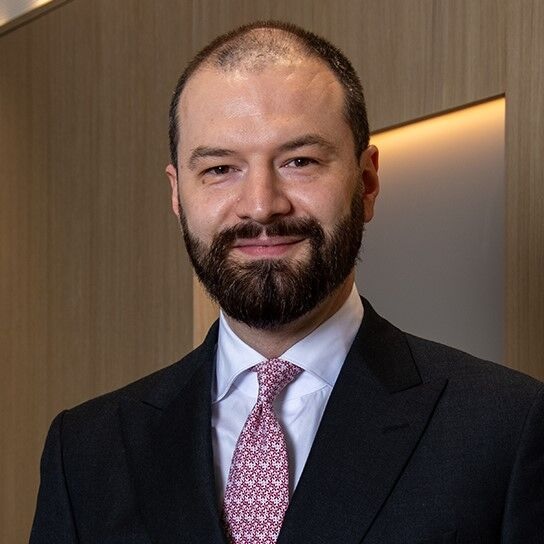
Ajay Kuntamukkala, Partner, Hogan Lovells LLP (DC office)
Larry Li, APAC Regional Counsel, Global Trade Services, TE Connectivity
Byron Maniatis, Partner, Hogan Lovells LLP (Brussels office)
Amidst the Trump Administration’s tariffs on China, Chinese retaliation with counter tariffs and blocking of exports of critical minerals, and ongoing negotiations over trade issues, the economic relationship between the United States and China is fraught with tension and complexity. Alongside these economic challenges lies fundamental disagreement on issues including human rights in Xinjiang and Hong Kong and the future of Taiwan.
This session updates our understanding of the Sino-U.S. relationship for the Trump era through the prism of export controls, sanctions, tariffs, and countermeasures, asking key questions such as: Where does trade controls policy fit in the Trump Administration’s approach to China? Will U.S. and Chinese trade controls continue to become more and more restrictive or will there be a detente? What are the trade-offs between export controls and dealmaking between the two sides?
With views from industry and legal practice from both sides of the Atlantic, this promises to be a must-attend session for any business with an eye on China trade.
Acts of Emergency? Potential new frontiers in national security legislation
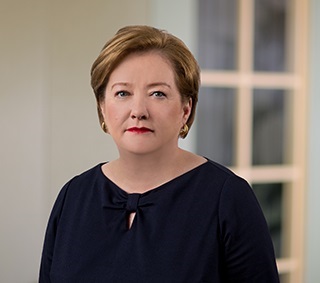
Barbara Linney, Partner, Baker Hostetler
By using the International Economic Emergency Powers Act as a justification for the imposition of tariffs, Donald Trump radically redefined perceptions of IEEPA, its scope and its application.
Likewise, recent comments by U.S. Treasury Secretary Scott Bessent suggest that the administration might be considering tariff payments in lieu of export control authorizations in some cases. These are not uncontroversial developments — IEEPA’s new application is still being challenged in the courts. What comes next? (is the question, amongst others, posed by Barbara Linney in her presentation.)
Chipping away? AI export controls after DeepSeek

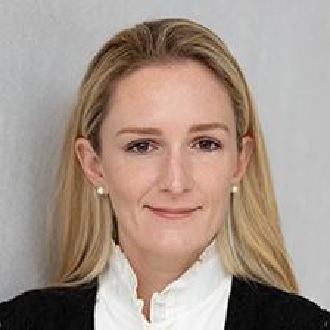
Thea Kendler, Partner, Mayer Brown, and former Assistant Secretary for Export Administration, BIS
Emily Benson, Head of Strategy, Minerva Technology, and formerly of the U.S. Department of Commerce and CSIS
Impetus to up the export control ante was increased at the beginning of the year after China’s DeepSeek revealed unexpectedly strong AI capabilities rivalling established U.S. players.
President Trump has set out his approach to the control of exports of advanced chips used for generative AI in his AI Action Plan, while BIS regulations have departed from the norms established by the Biden Administration, the most recent chapter, the long-awaited BIS 50% Rule, considerably broadening the scope of required due diligence. The resulting, evolving legislative landscape has consequences for exporters — and users — of technology both in the United States and beyond.
In this session, Thea Kendler and Emily Benson review the developments to date and consider the impact of likely further changes — both to technology and legislation — which are undoubtedly on the cards.
The future of defense is dual-use!

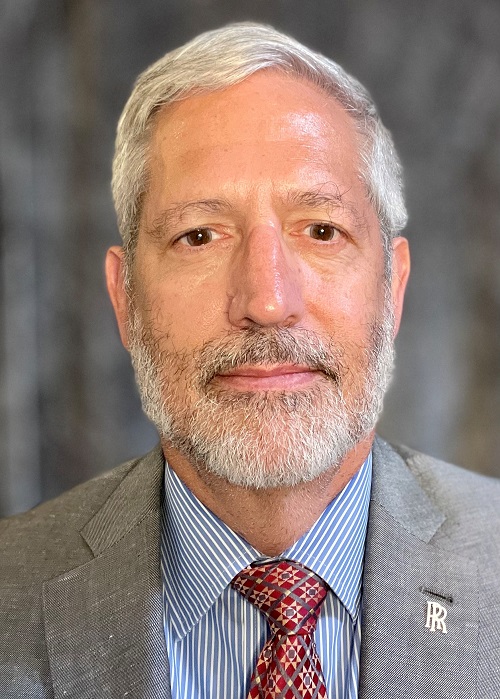
Tracy Gronewold, Director of Global Trade Compliance, Hillspire
Jeff Merrell, VP Strategic Trade Controls, Rolls-Royce North America
Traditional export control regimes distinguish between controls on military USML goods subject in the U.S. to ITAR, and dual-use CCL goods subject to the EAR. But recent conflicts have revealed critical flaws in many traditional defense platforms. They are too big, too slow, and too expensive. Methods of waging conflict are changing, and new, differently controlled technologies are emerging: Artificial Intelligence (running on advanced semiconductors); tiny, attritable drones; and commercial software.
At a time when common household tools and parts have found increasing use on the battlefield and regulators take steps to extend controls on such, Tracy Gronewold and Jeff Merrell ask, “Is the future of defense dual-use?” It’s a provocative question — here unpacked!
U.S. enforcement activity in 2025: Unravelling the lessons from the agencies


Elizabeth Shingler, Senior Manager, KPMG LLP
Todd Willis, Director, Global Export Controls & Sanctions, KPMG LLP
Each enforcement action tells a unique story — and each can be a goldmine of compliance learning for businesses. In this session, Elizabeth Shingler takes stock of the big-ticket enforcement actions in 2025 (such as the OFAC settlements with GVA Capital, Unicat, and Interactive Brokers, and BIS’s agreement with Cadence), peeling away the layers to reveal key takeaways, and considering how they can be applied to daily compliance best-practice.
We are delighted that Elizabeth will be joined by Todd Willis, formerly Global Trade Advisor at Caterpillar, Inc., where he helped create the Caterpillar Trade Center of Excellence with a team of over 90 trade experts, and a former Deputy Director at the Export Enforcement Coordination Center (E2C2) and Senior Policy Advisor within the Office of the Assistant Secretary for Export Administration.
Borderline issues: Mexico in sights of OFAC

Dawson Law, Conseil Global Advisors (Former U.S. Treasury and OFAC)
Since taking office, the Trump Administration has made “cartels” a key focus of its national security and sanctions policy — placing increasing pressure on Mexico to address issues of fentanyl and narcotics trafficking, and the effects of organized crime.
In this session, former U.S. Treasury and OFAC official Dawson Law explains the background to the President’s concerns, describes the regional and international reach of the cartels, the extent to which they are entwined with legitimate business, potential touchpoints, and steps the private sector should take so as not to fall foul of developing policy and regulation. Mr Law will also explain the significance of the Foreign Terrorist Organization designation, and the consequence of FINCEN’s identification of Mexican banks under the FEND Off Fentanyl Act.
Dawson Law is a former OFAC sanctions policy adviser, a former U.S. Treasury representative to the United Kingdom, and the founder of risk advisory firm Conseil Global Advisors.
Update on EU sanctions and their pitfalls


Tanja Galander, Partner, GvW Graf von Westphalen (Berlin)
Bettina Mertgen, Partner, GvW Graf von Westphalen (Frankfurt am Main)
Russia’s invasion of Ukraine has been Brussels’ prime consideration since 2022, and in response the European Union has imposed unprecedented sanctions (18 packages as at writing time) on Moscow. In doing so, the Commission has sought to centralize sanctions policy and practice across the bloc, imposing new thresholds and expectations for enforcement and penalties, and extending its authority to third-country subsidiaries of EU companies — with long-term repercussions for sanctions compliance. And while the Russia sanctions regime has dominated the compliance agenda, other programs also, including the return of the Iran sanctions, triggered by the JCPOA “snapback”, and the relaxation of the Syria sanctions regime, have long-term repercussions for compliance.
In this session, German/EU lawyers, Tanja Galander and Bettina Mertgen review the sanctions progress to date and look to the horizon for the EU’s possible next steps and their impact on international business and trade compliance.
Kicking the Tires: AI in Export Controls and Red Teaming Assumptions


Dr. David Bray, Distinguished Chair of the Accelerator, Stimson Center
Kevin Cuddy, Government & Regulatory Affairs Executive, Export Regulation Office, IBM
This session explores two complementary dimensions of artificial intelligence in the context of global trade and security.
Dr. David Bray will examine the practice of red teaming — deliberately challenging assumptions and stress-testing systems — and how it applies to AI development and deployment. Drawing from military and cybersecurity contexts, he will highlight the importance of human judgment in adversarial scenario planning and the risks of over-reliance on AI without robust human oversight. His talk will emphasize the need for interdisciplinary approaches to ensure AI systems are resilient, ethical, and aligned with strategic objectives.
Kevin Cuddy will focus on how AI technologies — including agentic AI and automation — are transforming export compliance. He will discuss practical ways export control professionals can leverage AI to streamline classification, licensing, and screening workflows, reduce human error, and enhance responsiveness to regulatory changes. The presentation will also explore how companies can incorporate AI-driven tools into their compliance programs to improve scalability, auditability, and risk management.
Together, the session will provide a forward-looking view of how AI can both support and challenge export control frameworks — and how professionals can prepare for a future where human and machine intelligence must work in tandem.
Communicating compliance


Sahra Su, Chief Legal Counsel, Export Control and Sanctions, SAP
Vedia Eidelman, Head of the Regional Trade Law Office, DHL
When events occur that have major implications for sanctions and trade controls, it is imperative that there is common company-wide understanding of their significance — communicated both internally and to stakeholders.
Communication failures can lead to reputational damage, poor compliance policies and mixed messaging to customers and investors – and yet, though critical, this is an often-overlooked area of compliance.
Drawing on their extensive experience and on case-studies and hypotheticals, Sahra Su and Vedia Eidelman will set out the key lines of communication, and organizational responsibility required when dealing with major change and developments.
Maximizing data riches: Finding, extracting, and putting trade data to use


Pete Heine, Senior Adviser, Pacific Northwest National Laboratory
Philip Luck, Director of the Economics Program and Scholl Chair in International Business, CSIS
In July, the European Union published a Strategic Trade Atlas to promote understanding of global trade flows of strategic goods — i.e., goods of militarily strategic value, including dual-use goods. This isn’t the only source of comparably rich data, but collectively, they’re largely untapped by regulators and industry alike.
In this session, Pete Heine and Philip Luck locate the data and set out use-cases, arguing that intelligent application can enhance both the effectiveness, and the efficiency, of strategic export control efforts.
AUKUS now – opportunity and security?


Ashley Roberts, Counsel, Hogan Lovells LLP
Lizzie Patterson, Senior Manager, International Affairs, Aerospace Industries Association
AUKUS, the three-way security pact between Australia, the UK and the U.S., carries profound implications for geopolitics and security in the Asia Pacific region and relations between the three signatory countries.
Pillar One of AUKUS — providing the necessary technology and capacity to assist Australia acquire a fleet of nuclear powered submarines by the 2030s — has required a new approach to export control. Is it working? Have the US, U.K. and Australian AUKUS licences delivered for contractors? And what are the long-term prospects for AUKUS and its compliance demands on primes and sub-primes throughout the defense supply chain who are looking to exploit the long-term opportunities that AUKUS presents?
These are among the questions considered as Ashley Roberts and Lizzie Patterson discuss the state of play.
Best practice masterclass: KYC, disclosure – and screening against the BIS 50% rule
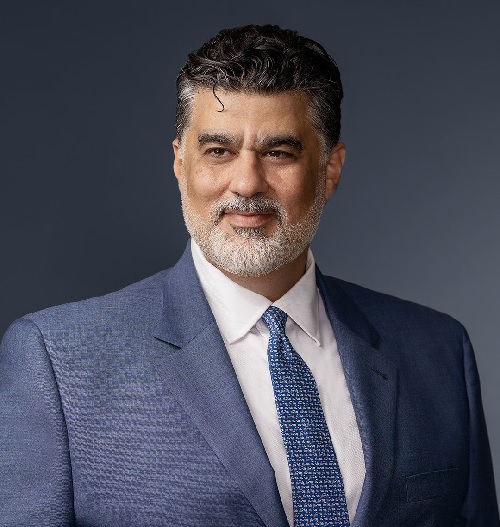
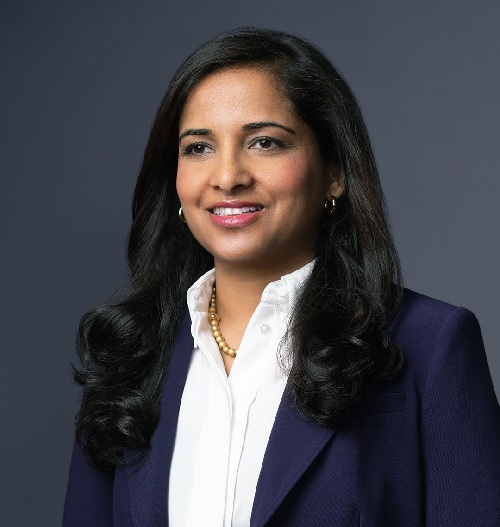

Tamer Soliman, Partner and Co-Leader of Sanctions & Export Controls, Mayer Brown
Aiysha Hussain, Partner, Mayer Brown
Jesse Horn, Trade Counsel, Corporate External Legal Affairs, Microsoft Corporation
The September 30 introduction by BIS of its new ‘50%’ or Affiliates Rule impacts Trade Compliance professionals from day 1 and is a clear reminder that regulations, guidelines and best practice change – as do the nature and source of threats, and potential violation touchpoints. Amidst the swirl of global events, screening, internal investigations and disclosure remain key to trade control compliance.
Jesse, Tamer and Aiysha will be leading this masterclass on compliance best practice including KYC and screening, client and customer onboarding, conducting internal investigations – and when and how to make disclosures to relevant authorities – against the backdrop of the expectations and messaging from the current administration and its enforcement priorities.
Sponsors:
Date:
November 4/5, 2025
Venue:
The offices of Hogan Lovells US LLP, Columbia Square, 555 Thirteenth Street, NW Washington, D.C. 20004
Individual registration fees
- For delegates from industry/academia/government: $695
- For delegates from legal/professional/consulting firms: $1350
- Join the optional dinner at the end of day 1: $140
- Registration includes light breakfast (both days), lunch day 1 and networking drinks reception following sessions on day 1.
- An optional dinner (costs $140) at a local restaurant will follow the networking drinks reception.
Terms and conditions
Please note, by registering for this event you accept the terms and conditions below.
Registration Fee
Your fee includes the attendance at both days of the conference; programme materials; and stated refreshments and access to networking receptions.
Registration policy
Delegates may not ‘share’ a registration without the organiser’s authorisation.
Payment policy
Payment must be received in full by the conference date. ‘Additional delegate’ prices are only available to delegates from the same organisation as the original full-fee delegate.
Cancellations and Refunds
You must notify the conference organiser 48 hours before the conference if you wish to change the delegate.
If you wish to cancel your registration, you can do so incurring the following charges:
Cancellation more than 28 days before the event – full refund less 33% admin fee.
Cancellation between 27 and 6 days before the event – full refund less 50% admin fee.
Cancellation between 5 days before and the day of the event – no refund.
Change of venue
The organisers reserve the right to change the venue should attendance numbers so demand.
Change of speaker and presentation
The organisers reserve the right to change speakers and/or presentations.







